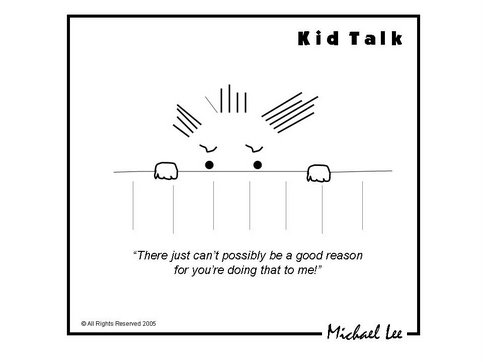Child protection laws are in place and many parties are working hard to curb child abuse. However, Welfare Department figures show that 1,577 cases of child abuse were recorded in 2004 compared with 1,390 in 2003, 821 in 2002 and 1,036 in 2001.
NIKI CHEONG, YAM PHUI YEE and NASA MARIA ENTABAN report.
COLLEGE student Lillian* is confident, poised and feisty. When she talks, she looks you in the eye and gives thought to her answers before speaking.
However, nuances separate her from her peers.
While most youngsters talk fondly about their parents, she does not. You can see that this is not a comfortable subject for the 18-year-old.
Her mother left when she was four. She and her younger sister were left in the care of a babysitter their father had hired.
When she was 11, their father took them back to stay with him in a rented room in Klang Valley.
The beatings started soon after.
“Sometimes, my father is a good but when he is in a bad mood, he would hit me because he did not like it when I talked back,” she said.
Her younger sister, then seven, was spared the beatings because she was more docile.
Once, Lillian recalled, her father hit her with a hanger in front of the housemates, which she found humiliating.
On another occasion, he used a belt on her over a refusal to join him for supper. The bruises on her legs were so telling that a relative felt compelled to make a police report.
The father was detained for a day but released later. She did not see him when he was released because relatives had bundled her off to a shelter home, where she stayed for a year before an uncle and aunt took her in.
“They did not have any children, so they treated me like their own,” she said.
As for the father, he admits to hitting Lillian.
“Yes, I had beaten her. She was a stubborn child who would retort whenever I scold her,” said Lawrence*.
According to him, he had to work very hard to support his children. Jobs did not come by easily and he turned to selling pirated VCDs. He lived on the edge daily, fearful of getting nabbed.
“When business was slow, I resorted to being hired for gang fights – as long as people paid me.”
With so much frustration “out there”, Lawrence said, he simply could not stomach coming home to rebellion from his own daughter.
“That is why, when she was naughty, I would discipline her. I only bruised her a little but she calls it abuse. So what can I do? I was arrested for something many parents do.”
Lawrence and Lillian’s story is not unique. A five-year study by the United Nations, initiated in 2001, found similar situations around the world.
The report on the study, United Nations Secretary-General’s Study on Violence Against Children, was launched in Kuala Lumpur during the Unicef forum entitled “Cherish Our Children – Stop The Violence Now!” last week.
It reveals that in every region, “much violence against children remains legal, state-authorised and socially approved”.
So what can society do to ensure the safety of children?
Many believe that the laws to protect a child are already in place in Malaysia through the Child Act 2001.
“Our laws are quite comprehensive. We have strict penalties that are sufficient,” Malaysian Association for the Protection of Children (MAPC) vice-president Dr Farah Nini Dusuki said.
However, Shelter executive chairman James Nayagam, who has seen the pain of thousands of abused children, believes much can still be done.
He called on teachers to be more alert in identifying possible cases of abuse.“Research shows that 85% of abuse is made known in the classroom such as when a child confides in a friend,” he said.
“Teachers should be able to detect mood changes and signs that the child is in trouble.”
While society may frown on those who are nosy, Health Ministry family health development division director Datuk Dr Narimah Awin says Malaysia should develop the culture of whistle-blowing as a preventive measure to curb child abuse.
“We must have a culture where we are not afraid to speak out,” she said.
Dr Farah also thinks that it is time to “mobilise religion more”, saying that religious teachers can be another “powerful force” in this crusade.
“They have the moral authority to promote values,” she said at the Unicef forum.
There are those who feel that Malaysia has come a long way.
“Things are going in the right direction. Many parties are now moving along at various levels and this has never been done before.
“Most hospitals now have SCAN (suspected child abuse and neglect) teams and the police have child protection units,” observed Dr Farah.
Meanwhile, young Lillian is about to complete her studies in hospitality and management.
For her, help mercifully came when she needed it most. The wounds may have healed but the scars remain.
* Names have been changed to protect the child’s identity.

PAINFUL CHILDHOOD: Abused children like her need the participation of all in society to help stop this menace.





No comments:
Post a Comment